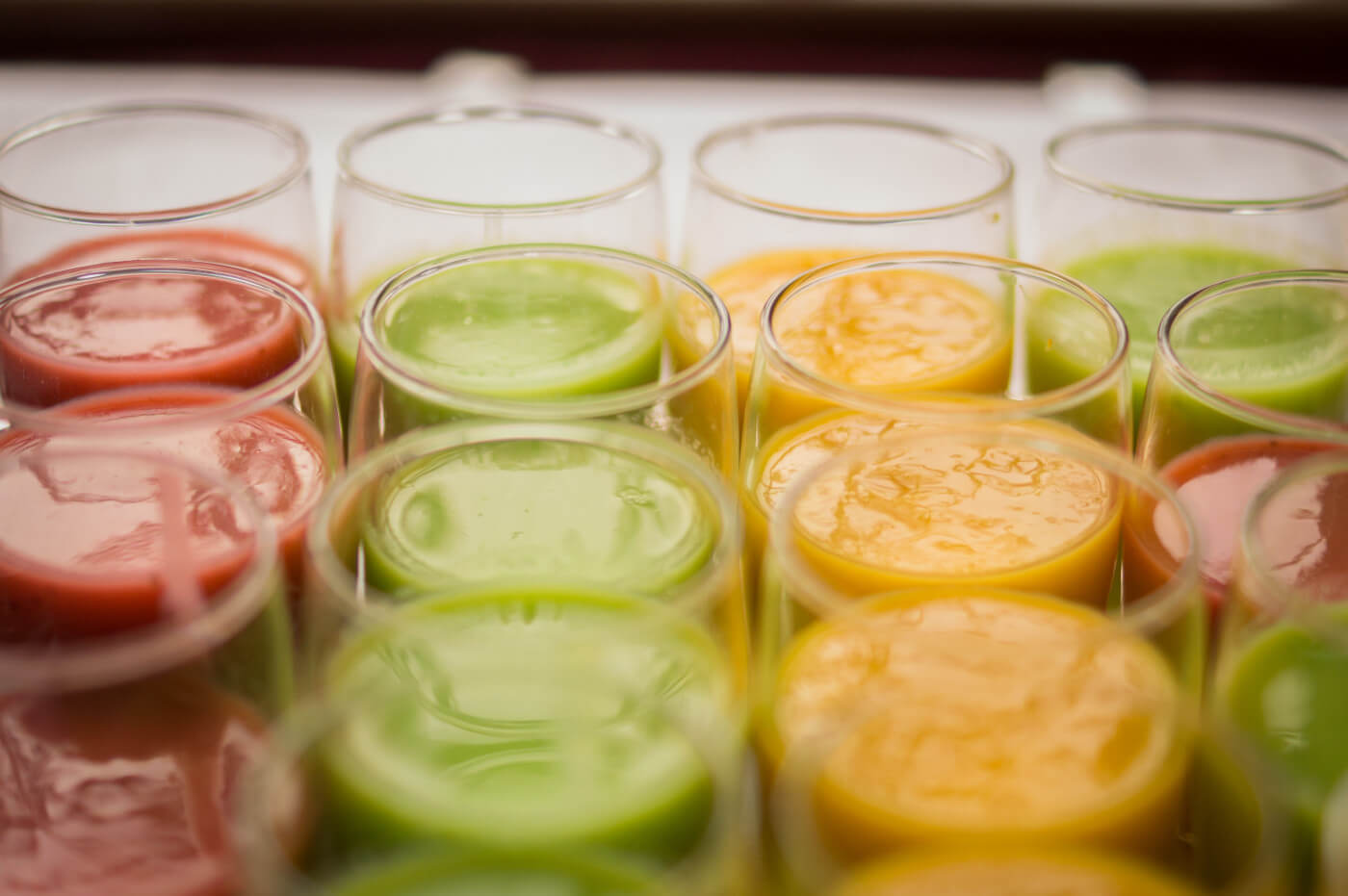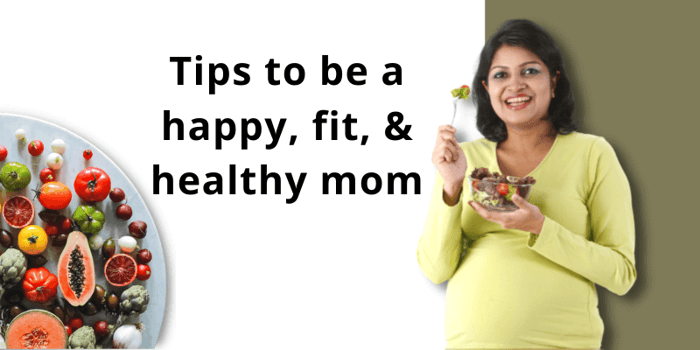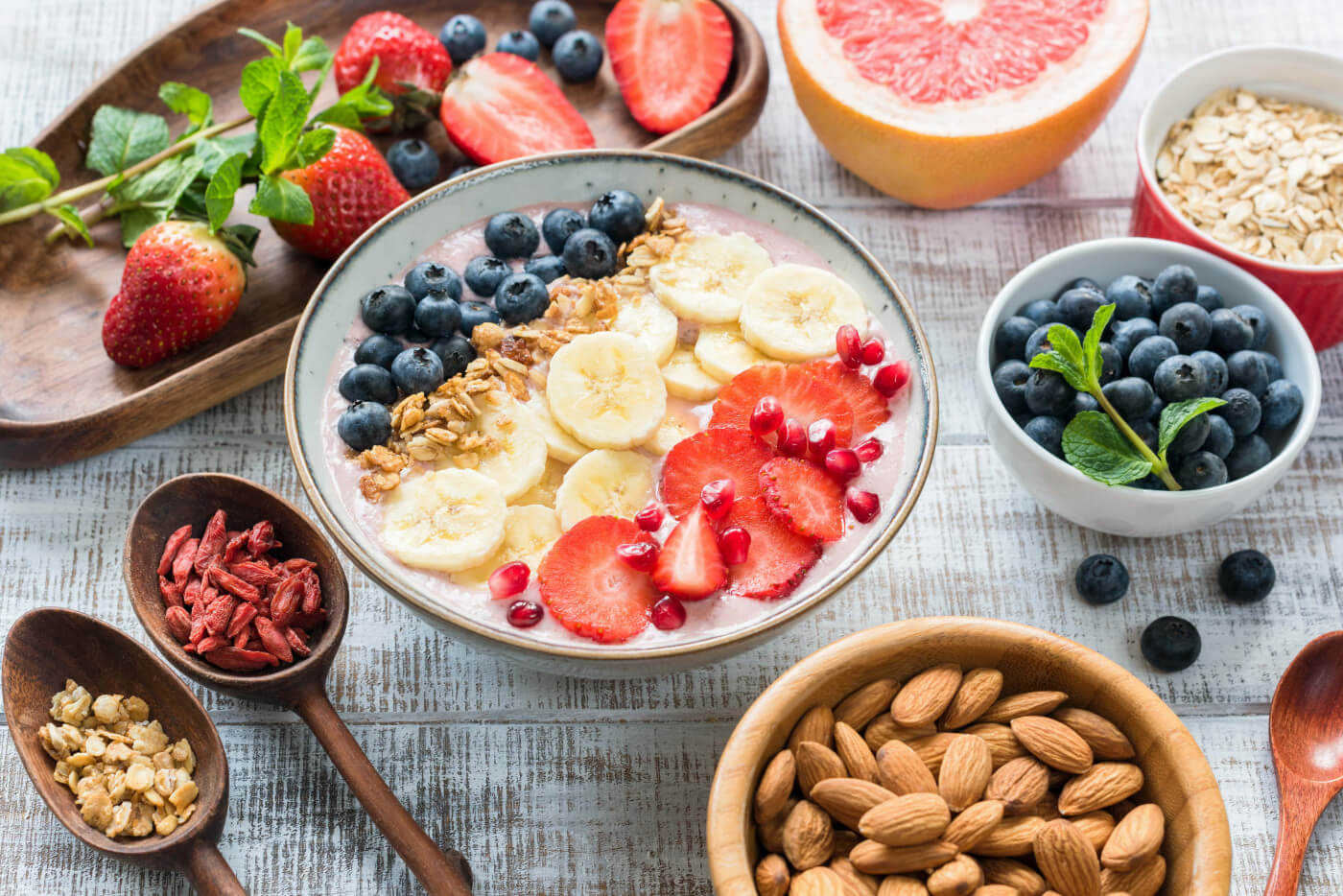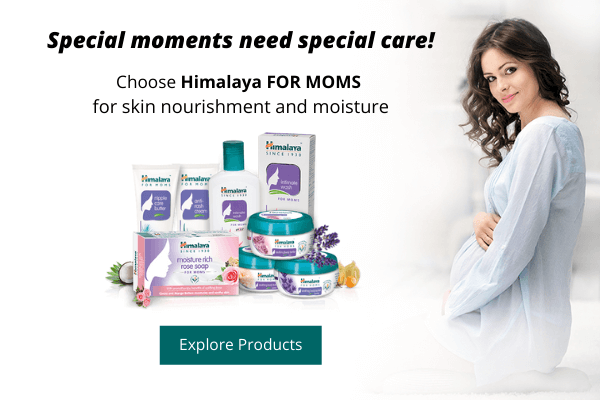In this article, we talk about the 10 useful tips to be a healthy mom. You can read about diet tips as well as foods to eat and avoid during pregnancy and motherhood.
As a mother, your health is as important as your child's. While you work hard to follow the right health routine for your baby, ignoring your own well-being is a mistake.
Tips to be a happy, fit, and healthy mom
- Keep yourself hydrated.
- Eat mindfully.
- Energy In = Energy Out.
- Micro vs. Macro.
- A rainbow on your plate.
- Not all fats are bad.
- Cut the salt.
- Snack smart.
- Don't avoid treats entirely. Take smaller portions.
- Three meals and two healthy snacks.
1. Keep yourself hydrated
The human body contains 50% to 70% of water. Water regulates body functions and temperature. Without water, human beings can survive only for a few days.
A pregnant and lactating mother should drink plenty of fluids including 8 to 12 glasses of water per day.
Fluids can include water, milk, buttermilk, juices, ice, and tender coconut water.

2. Eat mindfully
Mindfulness involves being conscious of the activity you are indulging in. Eating when not hungry can result in mindless eating. This leads to less-than-ideal choices that are neither enjoyable nor nourishing.
Avoid emotional eating. Instead, eat mindfully with family.
3. Energy In = Energy Out
Your daily intake of healthy foods should provide enough energy to balance the energy spent in your daily activity.
If your food intake is greater than the energy spent, you will experience a positive energy balance and weight gain.
Likewise, when the energy spent is higher than the energy intake, there is a negative energy balance, resulting in weight loss.
During pregnancy, eat healthily and stay active; do not try to lose weight. Post-pregnancy, continue to eat healthy and begin an exercise routine that will help you maintain your ideal weight.

4. Micro vs. Macro
Macronutrients provide energy in the form of carbohydrates, protein, and fat. Micronutrients such as vitamins and minerals help the body function.
An expectant mom’s diet should contain a balance of both micronutrients and macronutrients for the baby’s healthy development.
5. A rainbow on your plate
Fill half of your plate with fruits and vegetables at every meal. Avoid foods that are deep-fried or high in sugar, as these food choices lack nutrition and contain excessive empty calories.
6. Not all fats are bad
Healthy fats like mono and polyunsaturated fats found mainly in plant-based, natural liquid forms like olive oil, are good for health. They reduce bad cholesterol (LDL) and increase good cholesterol (HDL).
Saturated fats like butter or ghee, typically solid at room temperatures, should be eaten in limits. They can raise bad cholesterol and reduce good cholesterol, which may increase health risks.
Consuming omega 3 fats is important for good skin health and overall heart health.
Omega 3 fats are typically found in fatty fish and in vegetarian sources like flaxseeds and walnuts.
7. Cut the salt
Reduce salt as extra salt can raise blood pressure. Excessive salt intake can increase the risk of PIH (pregnancy-induced hypertension) in pregnant women. This can lead to further complications if not corrected.
The WHO recommends five grams or one teaspoon of salt per day per person from all sources.
All foods contain sodium naturally. Limit the addition of excessive table salt to food and avoid pickles, papad, and salted snacks.
8. Snack smart
Pick nutrient-rich, low to medium calorie, high-satiety foods that keep you fuller longer. Eat often and have smaller portions if you feel nauseated.
Choose lighter snacks listed below instead of heavy, greasy snacks to avoid heartburn and gastric issues during pregnancy.
- Nuts are rich in protein, fiber, and essential fatty acids or good fats.
- Dairy products contain protein, calcium, Vitamins A and D, and essential fats.
- Eggs are a source of protein, Vitamins A and D, and essential fats.
- Vegetables and fruit contain fiber, vitamins, minerals, and nutrients from plants.
- Soups with vegetables provide hydration, water-soluble vitamins, and fiber.
9. Don't avoid treats entirely. Take smaller portions.
Make sure you take smaller portions, eat slowly, and enjoy a treat every now and then. Another way to control your portions is to use smaller plates.
Remember that during pregnancy you need an extra 300 calories per day than your usual intake!
You should limit your intake of refined sugar as that may trigger an increase in triglycerides and insulin resistance.
10. Three meals and two healthy snacks
Three healthy meals and two healthy snacks are ideal for most mothers-to-be. Two hundred calories or less is sufficient for a snack.
As per the Indian Council of Medical Research, the energy intake suggested for an adult woman is about 1,900 calories per day. This could come from three meals and two snacks in a day.
Enjoy occasional desserts as extra calories during pregnancy. Calcium from dairy foods is helpful in bone and tissue development required for supporting the baby’s growth.
Do watch the portions from higher-calorie foods, though!
Check out the Mom Care section for more blog posts on mother's health, diet, and so on.
Explore the Himalaya Wellness blog for more useful articles.
 Himalaya Global Holdings Ltd. (Our Parent)
Himalaya Global Holdings Ltd. (Our Parent)





